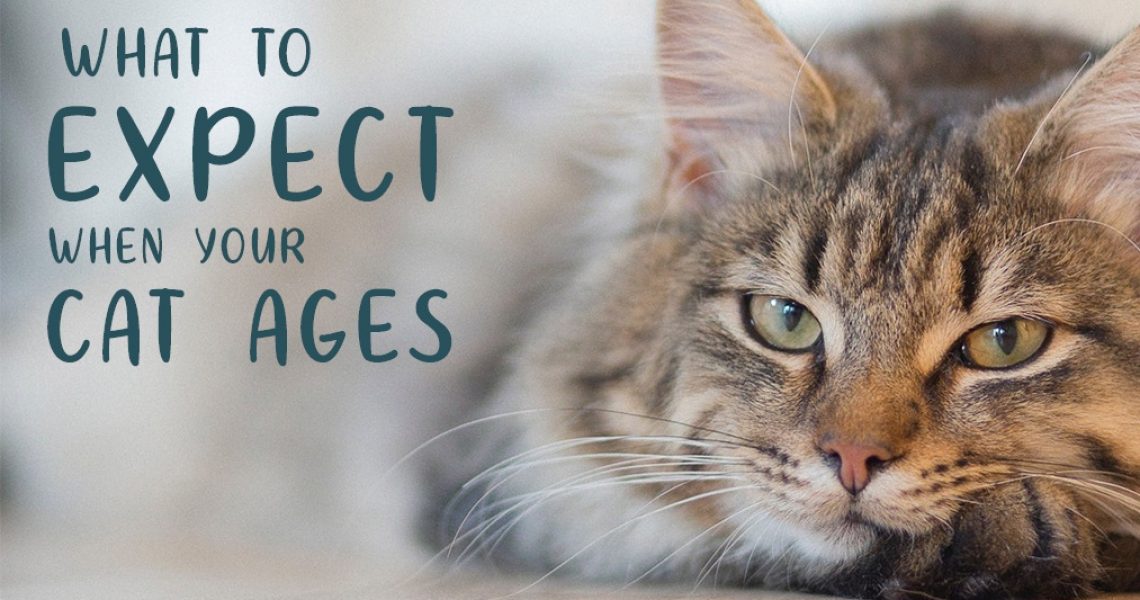How do you determine that classifies as a ‘senior’ cat? The old classic was was to take your cat’s age and multiply it by seven to get an equivalent in human years. A more accurate comparison between humans and cats is by stages of life – kitten, adolescent, adult and senior.
In addition to age, there are a number of signs that your cat may be approaching seniorhood.
Expectations of a Senior Cat
As a general rule, a senior cat is aged 8 to 10 years old or older. At this age, consultations with a veterinarian are recommended to determine a health care program for your cat.
Each cat, like each human, is different. As your cat ages, you may expect to see some physical changes in your cats’ physical appearance, activity levels, hearing and eyesight…amongst other things.
Slowing Down
That once spry kitten or young cat of yours from a decade ago may be a distant memory as you notice that your cat has now lost some of the spring in its step.
Other signs that your cat is slowing down include sleeping for much longer stretches, low-level enthusiasm for old games and play toys, less climbing or high perches now being out of reach…you may even notice difficulty going up and down stairs.
Reduced Hearing
Just like humans, cats can experience hearing loss. The rate of loss is variable. For some cats, hearing loss may be barely noticeable, or it can be total. If you have any concerns or suspicions that your cat may be suffering from hearing loss, visit a veterinarian to have your cat examined. Your vet will be able to rule out medical problems such as infection, parasites or growths in the canal that could interfere with normal hearing.
Cloudy Eyes
Like dogs, cat’s eyes can often appearing cloudy or hazy and bluish in colour – this is a normal effect of aging. This does not appear to affect a cat’s vision. This is not the same as cataracts. Cataracts are white and opaque. Vision can be affected by cataracts, and if your cat’s eyes appear whitish, then your vet needs to be consulted.
Thinning of the Iris
Iris atrophy, or thinning of the iris, may occur in some cats eyes, particularly those with irises lighter in color, like blue-eyed cats. The eye’s iris may appear to have splotches, or appear “moth-eaten.” Except for in extreme cases, this condition usually does not affect vision. This condition may occur only in one eye and can cause some cats to become more light sensitive. If you notice this condition, you should have it checked with your vet.
Muscle Loss
As cat ages, a distinct loss of muscle, called muscle atrophy, may become apparent, especially in the hind legs. If your cat is having trouble standing or walking, see your veterinarian. Muscle atrophy can be a sign of other medical issues, such as diabetes.
When to Go to the Veterinarian
As your cat ages, you should go to the veterinarian once a year for a regular checkup. A vet is trained to look for warning signs that you may not notice that can lead to senior cat health issues that are preventable or easy to maintain if caught early. There are a number of senior cat health concerns you should be aware of.
At Cat Utopia, we offer specific care packages for Senior Cats, which includes intensive monitoring and recording to help us recognise any subtle signs that an unwell senior may show and enable us to quickly take action to treat any ill health.


